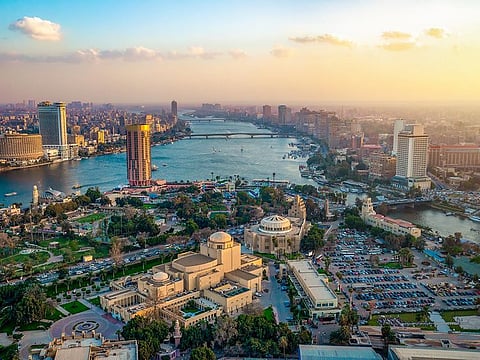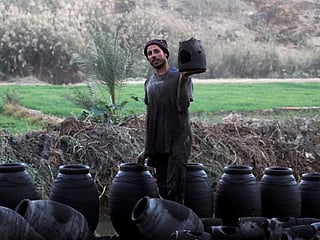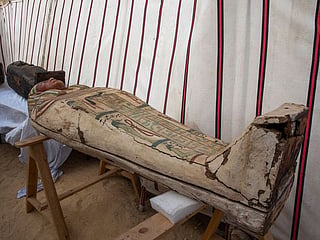Post-upheaval Egypt shifts course to mega-development
Security re-established as the nation eyes economic revival

Cairo: A stroll in central Cairo is not complete without a visit to Tahrir, an iconic square that for long months grabbed headlines in Egypt and elsewhere.
Tahrir was the epicentre of a 2011 popular uprising that forced longtime president Hosni Mubarak to resign. The plaza, home to the Arab League, the Egyptian Museum and luxury hotels, was a site of the unrest that gripped the nation after Mubarak’s ouster.
In the lead-up to the 10th anniversary, the square was refurbished and re-emerged as an allure to local and foreign visitors.
The Dh35 million renovation project signals Egypt’s development-orientated drive that has picked momentum against all the odds since 2014 when incumbent President Abdul Fattah Al Sissi took office.
A year earlier, the army ousted the now-banned Muslim Brotherhood following massive street protests against their exclusionary rule. The Brotherhood was widely accused of hijacking the anti-Mubarak revolt and favouring its loyalists.
Relentless campaign
In the wake of the Brotherhood’s ouster, Egypt experienced a spate of deadly attacks blamed on the Islamist group that was soon designated as a terrorist organisation.
While engaged in a relentless anti-terror campaign, Al Sissi’s Egypt has made strides in reviving its economy battered by the post-Mubarak turmoil and the Brotherhood-linked violence. Al Sissi has given security re-establishment and economic rejuvenation top priority. And he has done well, according to observers.
There has been a significant drop in terror attacks in recent months amid construction boom across the country.
“Anyone who has been away from Egypt for the past 10 years and sees it now will certainly be amazed at the scale of change in the country,” said Salah Al Hadi, a political analyst.
Record time
“The starting point in this renaissance was the new Suez Canal,” he said.
In 2015, Al Sissi, joined by several world dignitaries, inaugurated a 35km extension to the historical canal. The $8 billion project was built in a record one year and wholly funded by Egyptians through certificates of deposits, reflecting public support for Al Sissi.
The two-direction stretch running parallel to the original 193km canal, cuts the waiting time for ships passing through the waterway to three hours instead of eight. Transit times have also dropped from 18 hours to 11.
Global trade and logistics hub
The extension is part of a multi-billion-dollar ambitious development scheme designed to turn Egypt into a global trade and logistics hub.
Another mega-project is the building of a new capital for Egypt to ease pressure on centuries-old Cairo. State institutions are planned to be relocated to the new city, dubbed locally as the New Administrative Capital.
Suez canal: A lifeline
Around 120,000 of the labour, mostly Egyptian peasants, died in the 10-year construction of the canal due to food shortages, lack of health care and ill-treatment. The process was overseen by the Universal Company of the Maritime Suez Canal, co-owned by France and Egypt. In 1956, the then Egyptian president Jamal Abdul Nasser nationalised the Suez Canal. In response, France and Britain froze Egypt’s assets in their banks. Militarily, France, Britain and Israel waged tripartite attacks on Egypt marking the climax of what came to be known as the Suez Crisis. The waterway stretches from the Egyptian city of Port Saeed on the Mediterranean Sea to the Port of Suez on the Red Sea. When built, it was 164 kilometres long and eight metres deep. Upgrade works have since expanded it, raising its depth to 24 metres. In 2015, Egyptian President Abdul Fattah Al Sissi inaugurated a 35-kilometre extension to the historic canal. The eight-billion-dollar project was built in a record one year and entirely funded by Egyptians. The two-direction stretch cuts the waiting time for ships passing through the waterway to three hours instead of eight. Transit times have also dropped from 18 hours to 11. Owing to the new route, the Suez Canal will also be able to handle 97 ships per day by 2023.
“Besides their economic feasibility, these projects are a strong expression of Egyptians’ resolve to overcome hardships and make a new future,” said Al Hadi. “In fact, all-out development is the motto of the current era. Hundreds of projects are being carried out nationwide, giving birth to a new Egypt,” he said.
Thousands of projects
Under Al Sissi, Egypt has implemented 14,762 projects in different fields at an overall cost of LE2207 billion (Dh518 billion) until mid-2020, according to government figures.
Al Sissi on Saturday announced a project to upgrade 1,500 villages as the first stage in a three-year scheme, which he said will “change the face of life” in the Egyptian countryside.
“We have taken all dilapidated sectors: railways, agriculture and roads. I want to develop them all in a parallel manner,” he said in televised remarks.
In recent years, Egypt has built a network of 7,000 kilometre-long roads across the nation, part of efforts to provide an investment-friendly environment and reduce high rates of traffic accidents.
Relocation
The government has also relocated slum dwellers to well-equipped new communities.
In January 2019, the government initiated “Decent Living”, an LE103 billion programme aimed to help the less fortunate and develop their surroundings.
“Egypt has made marked progress in multi-level development to raise citizens’ living standards and applying serious economic reforms designed to strengthen the private sector’s role in development and catalysing small and medium-scale projects and entrepreneurship,” Egyptian Prime Minister Mustafa Madbouly said.
“The country is going ahead with improving services of housing, education, health care and social safety nets,” he added.
Al Sissi's achievements
-Leading the army’s ouster of the Muslim Brotherhood in mid-2013 following mass street protests against the Islamist group's rule; -Elected president in 2014, Al Sissi has waged a relentless war on terrorism; -Restoring stability to Egypt after a wave of militant attacks triggered by the Brotherhood’s toppling; -Championing a massive-scale development drive in different fields across Egypt, including: *Building an expansion to the historic Suez Canal opened in 2015; *Opening in 2019 a massive tunnel system built under the Suez Canal as part of his administration’s efforts to increasingly linking the Sinai Peninsula to the mainland; *Constructing a new capital for Egypt outside Cairo; *Unleashing a series of mega-projects to rejuvenate sluggish economy; *Initiating a national comprehensive medical insurance system; *Launching an ambitious project to upgrade the Egyptian countryside; *Introducing a package of serious measures deemed imperative to reform economy; *Constructing a nationwide network of roads to attract investors to the country and curb high rates of traffic accidents.
Most populous country
The vigorous drive is ongoing as Egypt, the Arab world’s most populous country, is battling to limit economic fallout from the global coronavirus pandemic.
“All these efforts mean creating a new productive economy designed to achieve possible self-sufficiency and utilise the cutting-edge technology in promoting heavy and light industries,” veteran political writer Abdul Halim Qandil said.
“Years ago and before the 2011 Revolution, I was one of those who said that the country needed rebuilding even starting from stretch,” added Qandil, a staunch critic of the Mubarak regime. “This is happening today through the parallel and balanced implementation of projects in different fields.”
Sign up for the Daily Briefing
Get the latest news and updates straight to your inbox







